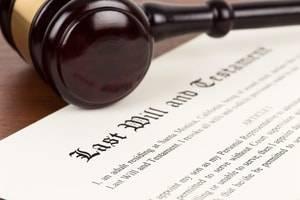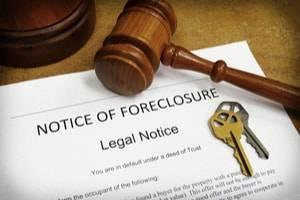 312-704-0771
312-704-0771
Recent Blog Posts
Debt Buyers Less Restricted than Collection Agencies
 Debt buyers and debt collection agencies may operate similarly, but there is an important difference between them. A creditor hires a debt collection agency to pursue debtors on its behalf. A debt buyer purchases the debt from the creditor, making it the new creditor. Still, governments often put debt buyers in the same category as collection agencies. Illinois law states that debt buyers are subject to the terms, conditions, and requirements of the Collection Agency Act, except in four instances:
Debt buyers and debt collection agencies may operate similarly, but there is an important difference between them. A creditor hires a debt collection agency to pursue debtors on its behalf. A debt buyer purchases the debt from the creditor, making it the new creditor. Still, governments often put debt buyers in the same category as collection agencies. Illinois law states that debt buyers are subject to the terms, conditions, and requirements of the Collection Agency Act, except in four instances:
- Surety Bonds: Debt buyers are not required to purchase and maintain surety bonds. Collection agencies must have surety bonds through an insurance company as guarantors for its clients. The bond will compensate the creditor if the collection agency fails to return the money it has collected. A debt buyer does not have client obligations.
- Trust Account: Debt buyers are not required to put the money they collect into a separate bank account, called a trust account. Collection agencies must hold the payments they receive in these accounts because the money is ultimately going to the creditors that hired them. Unlike collection agencies, debt buyers are not holding the debts for another party because they own the debts they are collecting.
Filing a Probate Claim on a Debtor's Estate
 The debt that someone owes you does not disappear when he or she dies. Instead, you can turn your collection efforts towards the deceased debtor’s estate. Creditors have a deadline to file a claim against a debtor’s estate and collect compensation from the estate before the debtor’s beneficiaries inherit the assets. You may lose your ability to collect your debt if you miss the deadline. You must know who you may contact about the debts, who can be liable for the remaining debts, and how quickly you will need to file a probate claim.
The debt that someone owes you does not disappear when he or she dies. Instead, you can turn your collection efforts towards the deceased debtor’s estate. Creditors have a deadline to file a claim against a debtor’s estate and collect compensation from the estate before the debtor’s beneficiaries inherit the assets. You may lose your ability to collect your debt if you miss the deadline. You must know who you may contact about the debts, who can be liable for the remaining debts, and how quickly you will need to file a probate claim.
Contact
The representative of the debtor’s estate handles all contact with creditors about claims on the estate. Once you know who the representative is, you are not allowed to contact the debtor’s family members. In many cases, the representative will notify you of your debtor’s passing and your right to file a probate claim against the estate. The representative could also send you a letter to cease contact because there are no assets in debtor’s estate to repay you. After receiving this letter, you are not allowed to contact the representative unless you are filing a lawsuit to dispute the claim of no assets.
Weighing Whether to Accept a Short Sale
 The Chicago area leads the nation in homeowners who are underwater on their mortgages, according to a recent study. Home values in the area have not recovered as much from the 2008 housing market crash as other metropolitan areas. Underwater homes are problematic for creditors trying to collect from mortgagees because:
The Chicago area leads the nation in homeowners who are underwater on their mortgages, according to a recent study. Home values in the area have not recovered as much from the 2008 housing market crash as other metropolitan areas. Underwater homes are problematic for creditors trying to collect from mortgagees because:
- Mortgagees may walk away from their homes and their mortgage payments because they have no home equity; and
- Mortgagers may not recuperate the value of the mortgage in a sale if the home’s value is worth less than what the mortgagee owed.
Your mortgagee may ask for you to accept a short sale if he or she cannot afford payments and is underwater on the home. You should be skeptical about approving a short sale because you are forgiving the mortgagee’s debt after allowing him or her to sell the home for less than the value of what he or she owes. However, foreclosure or the mortgagee abandoning the home can also be costly. When a mortgagee suggests a short sale, you should weigh several factors before making a decision:
Technicalities Do Not Quash Garnishment in Debt Collection Case
 Obtaining a judgment order against a debtor gives you the authority to enforce your debt collection. However, your debtor may continue to fight your collection efforts, based on legal technicalities and new claims. Thus, the legal battle against your debtor is not finished until you have received the money you are owed.
Obtaining a judgment order against a debtor gives you the authority to enforce your debt collection. However, your debtor may continue to fight your collection efforts, based on legal technicalities and new claims. Thus, the legal battle against your debtor is not finished until you have received the money you are owed.
Recent Case
In MI Management v. Proteus Holdings, the plaintiff is a creditor who appealed multiple Illinois circuit court decisions that:
- Quashed garnishment orders against a debtor;
- Vacated a third-party citation to discover the debtor’s holdings in a bank; and
- Granted a third-party creditor’s adverse claim to the debtor’s holdings.
In 2014, the plaintiff received a favorable judgment against two individual debtors and their company for breach of a $1.25 million promissory note. The plaintiff issued wage and non-wage garnishment summons against the debtors, who did not respond or appear in court. The court granted conditional garnishment judgment orders, which were later confirmed after the debtors continued to not respond. The plaintiff issued citations to discover assets to the debtors and their bank.
Collecting Debt from a Close Friend
 You likely will not need to file a lawsuit against a friend who keeps forgetting to pay back the $20 he or she owes you. Refusing to repay $20,000 is a different matter. Some people do not lend money to friends or family because they want to avoid an awkward situation where they have to pressure these people to repay them. However, it can be difficult to say no to a friend who is having a hard time paying for basic living expenses or needs financial assistance to start a business. You will decide whether to hold your friend accountable for the debt, but you should know that you have the same debt collection options as other creditors.
You likely will not need to file a lawsuit against a friend who keeps forgetting to pay back the $20 he or she owes you. Refusing to repay $20,000 is a different matter. Some people do not lend money to friends or family because they want to avoid an awkward situation where they have to pressure these people to repay them. However, it can be difficult to say no to a friend who is having a hard time paying for basic living expenses or needs financial assistance to start a business. You will decide whether to hold your friend accountable for the debt, but you should know that you have the same debt collection options as other creditors.
Written vs. Oral Contract
Illinois law enforces both written and verbal contracts, but a written contract is more concrete evidence in court. It is prudent to write down an agreement for a sizeable loan, even if you trust the person. With the written agreement, you can:
Illinois Enacting New Rules for Credit Card Companies, Debt Buyers
 The Illinois Supreme Court has adopted new rules regarding procedures for credit card companies and debt buyers who file lawsuits against debtors. The rules will go into effect on Oct. 1 and will apply to both new cases and active cases that have not reached a judgment. The new rules do not apply to an original creditor that is not a credit card company. The rules create new requirements that are meant to force creditors to be more timely and thorough in filing specified motions in court. There are three notable rule changes:
The Illinois Supreme Court has adopted new rules regarding procedures for credit card companies and debt buyers who file lawsuits against debtors. The rules will go into effect on Oct. 1 and will apply to both new cases and active cases that have not reached a judgment. The new rules do not apply to an original creditor that is not a credit card company. The rules create new requirements that are meant to force creditors to be more timely and thorough in filing specified motions in court. There are three notable rule changes:
- New Affidavit Requirements: A credit card company or debt buyer must use a new affidavit form when filing a complaint against a debtor. A statement must accompany the affidavit that says that the complaint was filed within the statute of limitations. Applicable creditors can modify their existing affidavit to comply with the new rule, as long as it includes the debt contract, relevant information on both parties, and a history of the debt.
Serial Bankruptcy Filer Held Accountable in Court
 One of the advantages that debtors gain by filing for bankruptcy is putting a stop on debt collection and property repossession efforts by creditors. By using bankruptcy, debtors often pay less than what they actually owe and discharge their remaining debts afterward. Some debtors abuse the process by being serial bankruptcy filers. Bankruptcy laws require filers to waiting a certain number of years before they can discharge their debt again. Serial filers try to continuously delay creditors’ debt collection actions by repeatedly filing for bankruptcy without ever completing a case. Debtors who attempt to defraud creditors through serial bankruptcy can face criminal charges.
One of the advantages that debtors gain by filing for bankruptcy is putting a stop on debt collection and property repossession efforts by creditors. By using bankruptcy, debtors often pay less than what they actually owe and discharge their remaining debts afterward. Some debtors abuse the process by being serial bankruptcy filers. Bankruptcy laws require filers to waiting a certain number of years before they can discharge their debt again. Serial filers try to continuously delay creditors’ debt collection actions by repeatedly filing for bankruptcy without ever completing a case. Debtors who attempt to defraud creditors through serial bankruptcy can face criminal charges.
Recent Example
In the case of United States v. Williams, the defendant was convicted on five counts of bankruptcy fraud for using repeated bankruptcy filings to prevent debt collection efforts by her condominium association. The defendant had fallen behind on payments to several creditors, including fees she owed to the condominium association. As part of the scheme to avoid debt collectors, the defendant would:
Possession Can Perfect Security Interest in Collateral Vehicle
 When repossessing a property from a debtor, having a perfected security interest in the property helps you prevent other interested parties from gaining possession of it. According to the Uniform Commercial Code, a security interest is created when:
When repossessing a property from a debtor, having a perfected security interest in the property helps you prevent other interested parties from gaining possession of it. According to the Uniform Commercial Code, a security interest is created when:
- The property has been given value;
- The debtor has a right to the property; and
- The debtor agrees that the creditor shall attach a security interest to the property.
The security interest gives the creditor the right to possess the property if the debtor cannot meet the debt obligation, and perfecting the security interest gives the creditor priority over other parties who may claim ownership of the property. A recorded financing statement is a common means of perfecting a security interest. However, actual possession of the property can be sufficient with properties such as vehicles.
How You Can Collect Rent While Foreclosing on a Property
 An assignment of rents clause in a mortgage agreement can be helpful when the borrower collects rent from tenants on its property. With the clause, the mortgagee may be able to collect rent payments directly if the borrower defaults on the mortgage. However, it can be difficult to predict how the clause will work in practice because of the vagueness of the law and inconsistencies between different state’s laws. Mortgagees with borrowers in Illinois have used litigation to enforce the clause. U.S. district courts have interpreted Illinois’ law on the assignment of rents to allow the mortgagee to collect rent when it meets certain requirements.
An assignment of rents clause in a mortgage agreement can be helpful when the borrower collects rent from tenants on its property. With the clause, the mortgagee may be able to collect rent payments directly if the borrower defaults on the mortgage. However, it can be difficult to predict how the clause will work in practice because of the vagueness of the law and inconsistencies between different state’s laws. Mortgagees with borrowers in Illinois have used litigation to enforce the clause. U.S. district courts have interpreted Illinois’ law on the assignment of rents to allow the mortgagee to collect rent when it meets certain requirements.
Property Possession
Establishing the possession of a rental property is the clearest way for a mortgagee to assert the assignment of rents clause in a mortgage. The mortgagee can claim actual possession of the property or constructive possession, which means the mortgagee effectively controls the property. In order to take possession of a real property during foreclosure:
Illinois Supreme Court Sides with Borrower in Foreclosure Case
 A foreclosure case between a bank mortgagee and borrower made its way to the Illinois Supreme Court earlier this year. In Bank of New York Mellon v. Pacific Realty Group, LLC, the courts had been trying to solve two points of contention:
A foreclosure case between a bank mortgagee and borrower made its way to the Illinois Supreme Court earlier this year. In Bank of New York Mellon v. Pacific Realty Group, LLC, the courts had been trying to solve two points of contention:
- Whether service by publication was an adequate means of informing the borrower of a pending foreclosure when the borrower does not have an agent in the state; and
- Whether the 60-day deadline for a borrower to file a motion to quash a foreclosure should have included a period during which the case was inactive.
The supreme court answered the second question in favor of the borrower and sent the case back to the appellate court in order for it to rule on the first question.
Background
The bank first filed a residential mortgage foreclosure complaint against the borrower in June 2010. A month later, the bank filed an affidavit for service by publication because it could not find an agent of the borrower in order to serve notice. After two years of the borrower not responding, a trial court made a default judgment of foreclosure, and the property was sold in February 2013.






